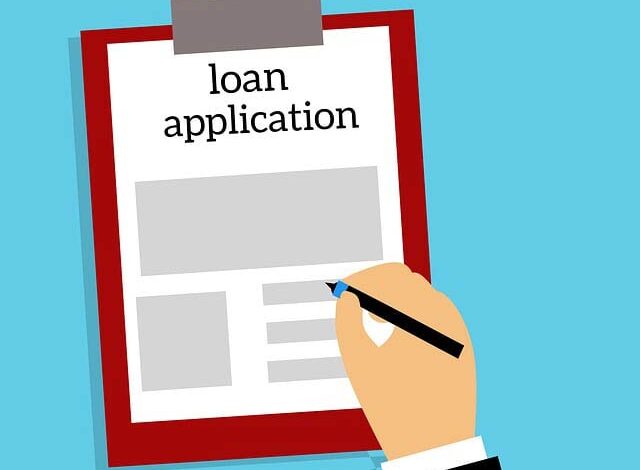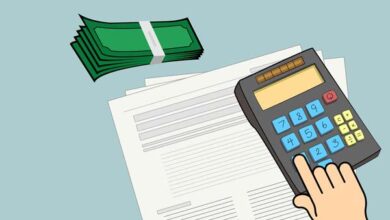Mistakes to Avoid When Applying for a Personal Loan

A personal loan is a type of loan that can be easily obtained and used for any purpose. Many lenders offer a wide range of personal loans, ranging from 1 lakh loan to 30 lakh loans. They typically come with competitive interest rates and repayment terms. However, it is important to be cautious when applying for a personal loan, as there are common mistakes that people make.
These include not having a good credit score, not comparing interest rates and terms from different lenders, and not having a clear plan for how the loan will be used. By being aware of these potential mistakes and taking steps to avoid them, you can increase your chances of getting the best personal loan for your needs.
8 Mistakes to Avoid While Applying for a Personal Loan
- Not Considering Your Repayment Capacity
When you apply for a loan, the lender will evaluate your ability to repay the loan on time. This includes checking your credit score, but also looking at your income and overall repayment capacity. If your income does not match the amount of loan you have applied for, or if you have already taken out too much debt, your loan application may be rejected.
It is important to remember that it is never wise to borrow more than you can repay. To avoid this, always make sure to apply for a loan amount that you are financially eligible for. If you need a higher amount, it is best to wait until you are in a better financial position to handle it, instead of taking on debt that could become overwhelming to repay.
- Approaching too Many Lenders
When you need money quickly, it can be tempting to apply for a personal loan from multiple lenders. However, this can actually hurt your chances of getting approved for a loan. When a lender reviews your application, they will perform a hard inquiry on your credit report. If too many hard inquiries are made in a short period of time it can significantly lower your credit score.
Additionally, if lenders see that you have applied for loans from multiple sources, they may assume you are too eager to take on credit and may be less likely to approve your loan application. To avoid this, it is best to only apply for a loan from one lender at a time and to be mindful of the number of hard inquiries made on your credit report.
- Not Disclosing Existing Loan Details
When you apply for a loan, it’s important to be honest and transparent with the lender about any other loans or financial obligations you have. This information is used to determine how much money you can borrow and what interest rate you will be offered. If you try to conceal any of your existing liabilities, it may result in your loan application being denied or you being charged a higher interest rate.
- Skimming Through the Paperwork
Before signing a loan agreement, it is important to pay close attention to the fine print and fully understand the terms and conditions of the loan. This includes reviewing all charges and interest rates that apply. You must have a clear understanding of every clause in the agreement in order to avoid any unexpected fees or charges later on. It’s important to examine the agreement thoroughly before signing it.
- Not Comparing the Options Properly
When looking for a loan, it’s important to shop around and compare your options from different lenders. This includes researching the interest rates, any prepayment penalties, and any additional charges that may apply from various banks and financial institutions. By taking the time to thoroughly investigate all of the loan options available to you, you can make an informed decision and choose the lender that best meets your needs and financial situation.
- Opting for a Longer Tenure with Lower EMIs
On the surface, this may seem like an attractive option as it reduces the amount of money you need to pay each month towards the loan repayment. But it will cost you more in the long run compared to shortening your loan tenure and increasing EMIs as this will result in higher interest rates as well as higher total payments made over time.
- Not Checking Your Credit Report
Your credit score is one of the key factors lenders use to determine whether or not they will approve your loan application, so you must know what yours is before applying. If there are any errors on your credit report which could impact your score negatively, this could put a hold on your application and cause unnecessary delays. It’s also wise to check if there have been any fraudulent activities on your account that could take some time and effort to resolve.
Not taking these steps can leave you in a difficult situation when trying to get approved for a personal loan.
- Not Checking Fees and Charges
When you take out a personal loan, it’s important to be aware that many lenders will charge various fees. These can include things like processing fees, administrative fees, and foreclosure fees. To avoid any unexpected costs later on, it’s important to carefully read the terms and conditions section of the offer document and make sure you understand all of the fees involved. Only proceed with a lender if you are comfortable with the fee structure they have in place.
Author Bio:


Tanvi Kaushik specializes in Content Marketing and works with the Digital Team at KreditBee – India’s fastest personal loan platform where self-employed and salaried professionals can easily avail of personal loans in just a few minutes when in need of quick funds. Tanvi writes to-the-point articles on personal finance and budgeting which are truly appreciated by her readers. She is committed to making money matters easy to understand even for the layman. Her commitment to her work doesn’t stop her from pursuing her hobbies of hiking, trekking and going on adventurous trips.






